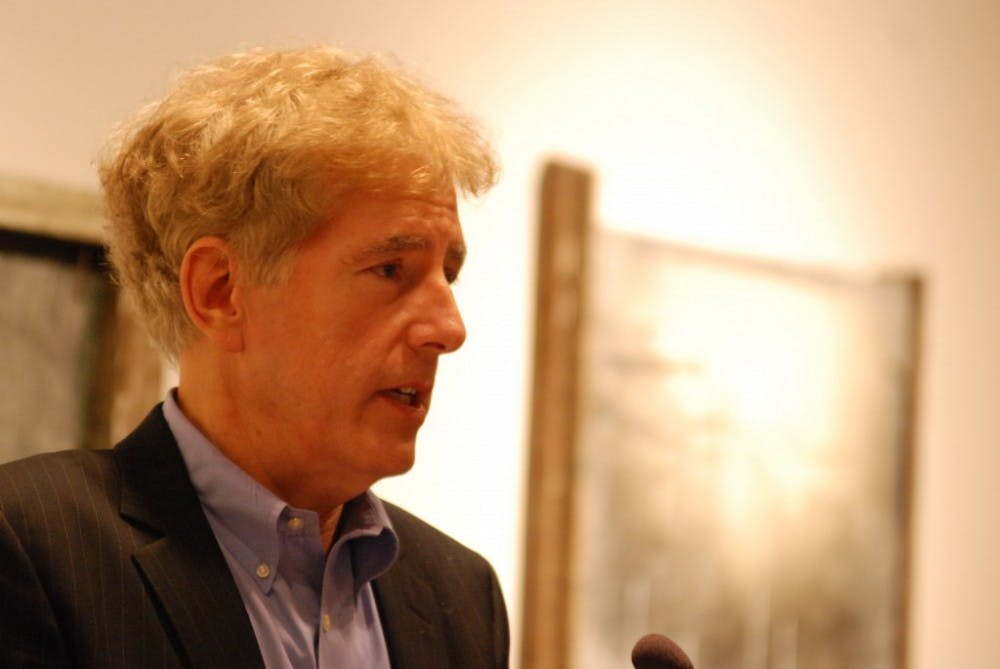John J. Stuhr, professor of psychology at Emory University, defines one of the common motivations to live as a repetitive act. As evidence, he referenced the Greek myth where Sisyphus was doomed to roll a boulder up a hill and begin again every new day. He also expressed this thought in a lyric from the song “Be Here Now” from the artist Mason Jennings: Sun comes up and we start again.
The phrase was repeated several times throughout Stuhr’s talk “God, Death, and the Absurd: What Makes Life Worth Living?” April 19 in the Isabella Cannon Room. The speech comprised Elon University’s annual Ferris E. Reynolds Lecture. Professor J. Stuhr analyzed the question in the lecture's title through perspectives of varying philosophers — most frequently the American psychologist and philosopher William James. Stuhr handed out sheets of the script of his talk so the audience could read all of his choice quotes of James from his book “Is Life Worth Living,” which was published in 1895.
Stuhr began his talk with a list of mental images of people who were facing death in the literal sense and had to question their existence for the given situation, such as an AIDS patient close to death and a Marine jumping on a grenade. Sthur indicated most people don’t often investigate their life motives at as deep a level.
The speaker described how a patchwork of anticipation powers a human’s day-to-day existence and makes it palatable. His talk supplied definitions to this outlook based on James’s writings. The first was temperamental optimism, which he described as all-consuming Walt Whitman-like joy for both good and bad.
“There is no fate that cannot be surmounted by scorn,” he said.
He defined naturalistic optimism as people insufficiently joyous but anti-pessimistic and searching for atonement. Stuhr said this life outlook is common among people of faith.
“What does someone atone for?” Stuhr asked in his discussion of the religious aspect of the perspective.
He said the perspectives all reside within the genre of absurd pragmatism because they were all predicated with human beliefs and hopes. Stuhr compared and contrasted the varying pros and cons his featured philosophers had with the different perspectives.
Junior Elise Noyes, a psychology major, said she was glad she attended Stuhr’s program.
“I don’t get the opportunity to take as many philosophy classes as I would like so it makes something like this really enjoyable to go to,” she said.
Noyes also said the setup of the program, referring to Stuhr’s lecture that was followed by smaller discussion groups, was appropriate to elicit a philosophical atmosphere that provoked some deep-thinking.


